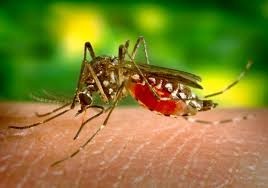
The Department of Health reminds South Dakotans to get in the habit of using mosquito repellent as the state’s first human West Nile virus (WNV) case of the year has been detected in Davison County in the 60-69 age group.
“Most people who contract West Nile virus, about 70-80 percent, don’t get sick but those who do can be severely ill,” said Dr. Lon Kightlinger, state epidemiologist for the department. “While typical symptoms include fever, headache, body aches and rash, in severe cases WNV can invade the brain and spinal cord leading to stiff neck, confusion, paralysis, coma and even death.”
Kightlinger said South Dakota has a disproportionately high number of WNV cases and he encouraged residents to reduce their risk with the following precautions:
· Apply mosquito repellents (DEET, picaridin, oil of lemon eucalyptus or IR3535) to clothes and exposed skin. Limit exposure by wearing pants and long sleeves in the evening.
· Limit time outdoors from dusk to dawn when Culex mosquitoes, the primary carrier of WNV in South Dakota, are most active.
· Get rid of standing water that gives mosquitoes a place to breed. Regularly change water in bird baths, outside pet dishes, and drain water from flower pots and garden containers.
· Support local mosquito control efforts.
These precautions are especially important for people at high risk for WNV – those over 50, pregnant women, transplant patients, individuals with diabetes or high blood pressure, and those with a history of alcohol abuse. People with severe or unusual headaches should see their physicians.
Since its first human WNV case in 2002, the state has reported 2,359 human cases, including 745 hospitalizations and 38 deaths. Every county has reported cases.
Visit the department’s website at westnile.sd.gov for more information about WNV.
